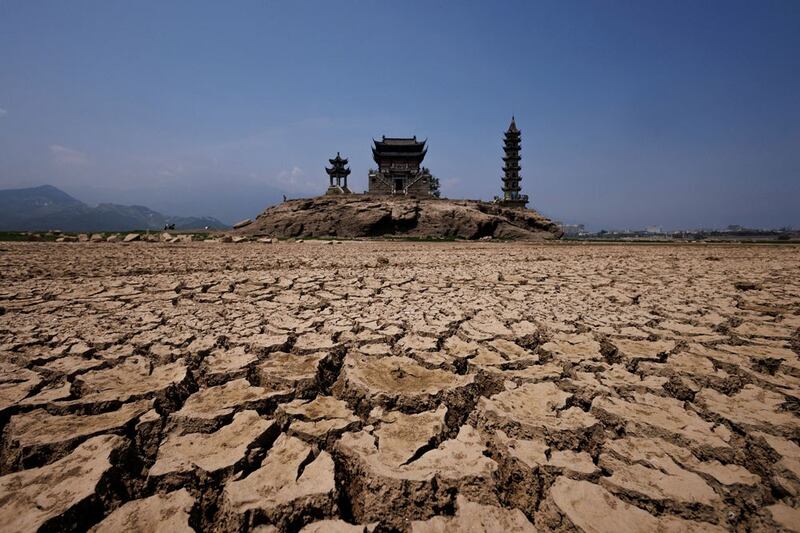Millions of residents of the southwestern Chinese city of Chongqing are being ordered out to line up for mass COVID-19 tests across the city in a heatwave that has sparked a three-day-long wildfire in the nearby hills and dried up a major local river.
Photos and video circulating on social media and a report from CNN showed hundreds of people standing in line for mandatory COVID-19 testing in the southwestern megacity, which had a top forecast temperature of 41C on Wednesday.
Twitter account @songpinganq, which describes itself as "firmly against" ruling Chinese Communist Party (CCP) leader Xi Jinping's zero-COVID policy, posted video of people lining up on streets, saying it was shot at 2.00 a.m. on Aug. 24 in Chongqing.
"Authority switched the color of all residents' QR code COVID app to orange and you need to take COVID test to turn it back to green," the account said, in a reference to China's health code COVID-19 app, which must show a green code if the user is to gain access to public transportation or facilities.
An amber, or orange, code, means the person is required to submit a negative PCR test before it will revert to green.
"Tonight, all 30 millions residents lining up the whole night to take mandatory COVID test," the account tweeted.
As the city's residents stood in line, with some fainting in the intense heat according to social media posts, wildfires continued to rage in the Jinyun mountains outside the city, sending thick smoke billowing into the skies.
Worrying blaze
A resident of Chongqing's Beibei district, which is closest to the fires, said it was worrying to see.

"It's been going for maybe three or four days, and the fires are still blazing to the skies at night," the man, who have only the surname He, told RFA.
"You can see the flames engulfing graves [up on the hillside]; a lot of people are standing watching," he said. "Everyone is very concerned about the fires in the Jinyun mountains."
According to He, the authorities are setting up fire isolation belts to prevent the wildfires spreading further, but it remains to be seen whether this is working.
The official website of the Beibei district government said firefighting equipment is already at the scene, including helicopters.
According to the Caixin news site, the fires started to spread towards the northeast on Sunday night, and initial attempts to contain it with rubber mops and fire trucks had broadened to include mechanical diggers to carve out firebreaks around the area.
Posts on social media said some volunteer groups had been set up to aid the firefighting effort, some with more than 3,000 members who included mechanical digger operators and off-road motorcycle riders to deliver supplies to the rescue teams.
"People's are very sad about this, because the flames are eating into a beautiful forest area in their hometown," He told RFA, adding that precious botanical species and local wildlife are being destroyed across a wide area.
Deaths of elderly
Some relief from the heatwave may be on the way in neighboring Sichuan province, with the provincial weather bureau issuing a blue rainstorm warning on the evening of Aug. 24, and rain arriving in the provincial capital Chengdu in the middle of Wednesday night.

Many elderly people have died during the recent extreme heat, according to Sichuan resident Li Yu.
"My friends in Chengdu told me they found three people dead from the heat yesterday; elderly people in a former industrial area east of Chengdu," Li said.
Online reports said others have died when they tried to work the fields in the sweltering heat, or at home alone during the heatwave.
A Chengdu resident who gave only the surname Liu said many local office buildings and shopping malls currently have no power and no air-conditioning, leaving people sheltering in their homes from the heat.
"We have kids ... and I don't want them going out ... so we just run the air-conditioner at home," she said.
Chongqing saw temperatures peak at 45C at the height of the heatwave, which has dried up Poyang Lake and reduced the local Jialing river to a few pools of water in recent days.
Translated and edited by Luisetta Mudie.
